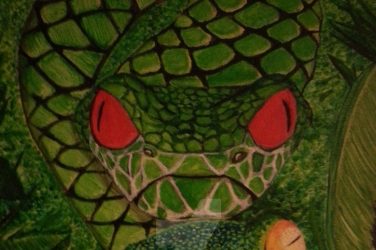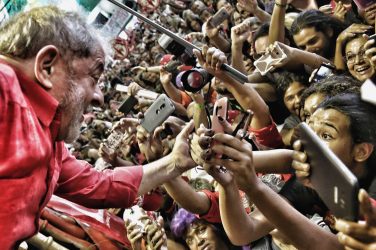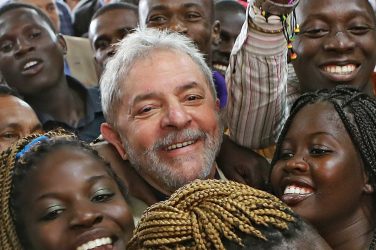Federal prosecutors in Brazil in charge of the corruption investigation Operation Car Wash, which uncovered possible wrongdoing by President Michel Temer and hundreds of other politicians, criticized the decision of the Federal Police to eliminate a special team dedicated to investigating the case.
The group investigating the largest corruption scandal in Brazil’s history will be disbanded and the officers placed within a larger team dedicated to the fight against corruption in general. They will also have smaller workloads.
According to the Attorney General’s office, the dissolution of the working group will make it more difficult for the police to discover connections between the hundreds of people under investigation.
“The integration, announced after a reduction of the number of agents to less than half, is detrimental to the Operation Car Wash investigations and makes it difficult for them to continue with the efficiency with which they were developed until recently,” the Attorney General’s office said in a statement Thursday.
The announcement comes as police presented to the Attorney General what they described as evidence that President Michel Temer accepted and gave bribes.
They also criticized the government for not allocating sufficient funds to their budget for essential tasks, like the commissioning of passports.
Temer faces possible suspension and impeachment if the Lower House of Congress and the Supreme Court approve a trial based on the corruption charges presented against him.
Opposition lawmakers have criticized the government and warned that Temer and his aides could find ways to block the investigation by the Federal Police.
The prosecutor’s office said the lack of available investigators leaves a list of pending issues and no possibilities to open new lines of investigation in corruption cases.
“Federal Police personnel in Operation Car Wash, drastically reduced with the current government, are not adequate for the demand,” they said in a statement.
“Today, the number of cases and investigations is limited by the number of investigators available.”
As part of Operation Car Wash, more than 80,000 documents have been retrieved, over 21 million financial transactions have been traced and at least 280 people have been charged with corruption or money laundering, according to the Attorney General’s office. More than US$ 3 billion have been recovered because of the investigation.
Meanwhile, the Federal Police justified their decision by saying that the measure is intended to “prioritize even more investigations with greater potential for damage to the public treasury, as it allows an increase in specialized personnel in the fight against corruption and money laundering and facilitates the exchange of information.”
A Broader Division
Officially, the Federal Police reported that its commissioners assigned to the task force dedicated to the Operation Car Wash corruption investigations in Paraná will be reincorporated into the anti-corruption and embezzlement enforcement division, which means they will no longer focus exclusively on the Car Wash case.
The decision also applies to the work group dedicated to Operation Weak Flesh in the state, a an investigation into a fraud scheme to sell tampered food without proper inspection.
Federal Police said the reincorporation of the focus groups into the broader anti-corruption division was a move to “give even higher priority to investigations [on cases] with greater treasury hurting potential, which will enable an increase in personnel specializing in anti-corruption and anti-embezzlement enforcement and make it easier to pool information.”
“Under the new work arrangement, none of the police commissioners working on Car Wash will have their workload increased. Rather, it will decrease with the addition of new police authorities,” a Federal Police statement read.
It said the decision to fold the groups back into a broader division emanated from Igor Romário de Paula, a regional commissioner on anti-organized crime enforcement who coordinates Operation Car Wash in Paraná state, and confirmed by Rosalvo Franco, the regional superintendent.
Criticism
The shutdown of the work groups – particularly the Car Wash one – drew criticism of Federal Police and the government. In his personal account on social media, Federal Prosecutor Carlos Fernando dos Santos Lima, who is a member of the Car Wash investigative task force in Curitiba, said the operation “has ceased to exist.”
According to him, the funding is insufficient to “bring in more commissioners” to boost the investigations, just as it is insufficient to continue issuing passports.
“Politicians are seeking to stifle investigations. We must be careful or Brazil will end up like Italy, where it’s much more difficult to investigate and punish someone for corruption now than it was before Mani Pulite,” the prosecutor wrote referring to the massive Italian corruption operation launched in 1992.
Mani Pulite took hundreds of people to jail, including many politicians, and was an inspiration for Car Wash members.
According to the national association of federal police commissioners, there have been no new hires for three years. In the latest recruitment (through civil service examinations) in 2012, 120 of the 150 successful candidates were hired for open positions. The association has declined to comment on the Federal Police’s decision to close down work groups.
In its statement, Federal Police maintained the size of the personnel in Paraná is proportionate to the demand and may get reinforcements if required. Moreover, the new pattern is already adopted by other superintendencies that investigate cases related to spin-off cases from Operation Car Wash, including those in Rio de Janeiro, São Paulo, and the Federal District.
tS/ABr












